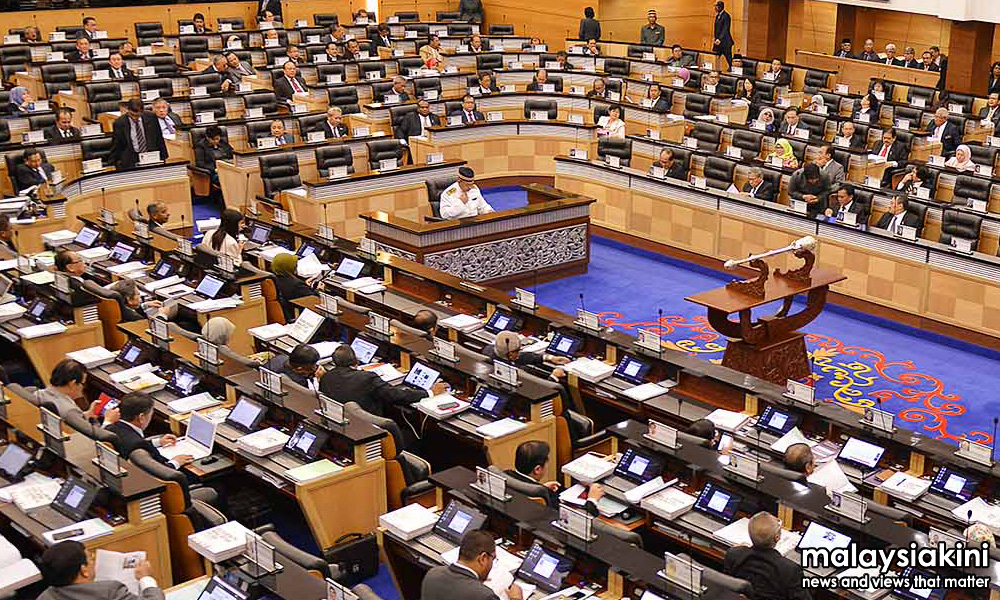
PARLIAMENT | The Dewan Rakyat has passed the Dangerous Drugs (Amendment) (DDA) Bill with changes that will give courts full discretion to mete out life sentences against drug traffickers.
The changes were mooted by Minister in the Prime Minister's Department Azalina Othman Said during the committee stage of the DDA Bill.
Currently, judges are bound by law to sentence drug traffickers to death.
The government had sought to change this by amending the Dangerous Drugs Act, to allow for life sentences if the accused helped authorities to disrupt other drug operations.
However, under the original Bill tabled on Nov 23, a judge can only impose a life sentence after obtaining a written certificate from the public prosecutor.
The original bill had drawn flak from the opposition and Bar Council for not empowering the judiciary to make such a decision themselves.

Attorney-general Apandi Ali (photo) said he had advised the government to allow judges to have full discretion over sentencing.
During the debate on the DDA Bill, the opposition failed in its bid to grant judges further flexibility in dealing with drug trafficking offences.
Ramkarpal Singh (DAP-Bukit Gelugor) had mooted that the House allow the courts to impose a minimum sentence of five years in jail and 10 strokes, instead of being forced to decide between the death sentence and life imprisonment and a minimum of 15 strokes.
Earlier, Azalina said the amendments are not retrospective on those who had been convicted as they can appeal their sentences at a higher court or file a petition with the Pardons Board.
According to her, those already convicted had gone through of a strict legal procedure before the death sentence was meted out.

Thus, Azalina (photo) said, they should be differentiated from those who were charged but yet to be sentenced.
"This is not against the equality guaranteed by the Federal Constitution, which can give differential treatment to different classes," she said.
"The principle of Article 8 underlines that a law must operate equally on all persons under similar circumstances, and not simply that it must operate equally on all persons in any circumstance.
"The government's approach is that those convicted under the existing law are not categorised in the same class with the accused who have not yet been convicted," she added.
On why the Bill only allows the court to impose the death sentence or life sentence, she said the government once allowed the court such absolute power that it led to an imbalance in the sentencing of cases.- Mkini



No comments:
Post a Comment
Note: Only a member of this blog may post a comment.